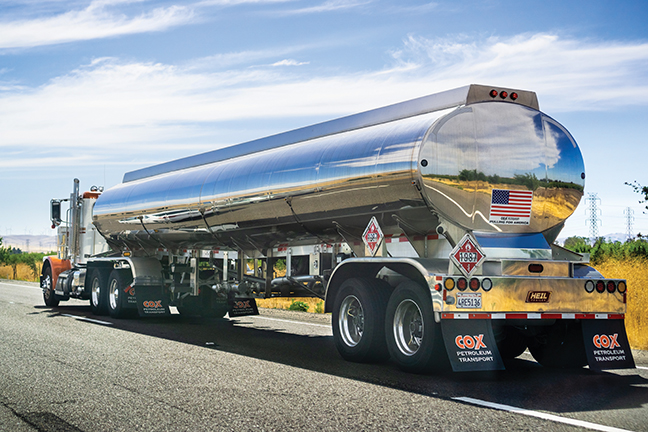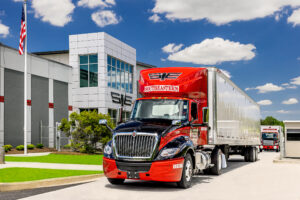One of the most common mistakes new truck drivers make occurs before they even get their commercial driver’s license (CDL). New drivers often have a good idea of what job they will be taking once they have their license, and often obtain only the endorsements they’ll need for that job.
An example is the driver who accepts a job while still in CDL school with a company that pulls dry van trailers. Aside from air brakes, no other endorsements are required. After months on the road, it becomes evident that the weeks away from home are putting a strain on family relationships — and the search is on for a local job that allows more time at home. One local job involves tankers pulling petroleum products. Another opportunity with great pay requires a doubles endorsement. The driver isn’t qualified for either job and will need to find a way to study — and then use up more valuable home time to take the exam for the required endorsements.
The reality is that the trucking industry routinely reports an annual turnover rate approaching 100%. That means that, on the average, almost every driver makes a job change once per year. Of course, that’s only a statistical average; some drivers stay with one company for many years while others switch companies after only a few months. Still, new drivers are highly likely to have more than one job in their first year of employment. So, the question for every driver is this:
Why wouldn’t you want to be as qualified as possible to accept any job in the industry?
CDL manuals from nearly every state contain study sections for each endorsement, and CDL schools often cover those endorsements in the classroom curriculum. It’s usually easier to pass the state exams while the information is fresh. Available endorsements include the following:
Air Brake
It may seem like a given that you’ll need this endorsement, but it is possible to obtain a CDL without it. Some vehicles require a CDL because of weight or the cargo they haul, and when hooked to trailers may require a Class A license.
Doubles-Triples
Shorter “pup” trailers are often used by less-than-truckload (LTL) carriers, including package and parcel carriers. Some of the jobs LTL carriers offer are over the road, while many are “pedal” runs to and from the same terminal. Depending on the distance, the driver may get home every night, every other night, weekly or some other schedule.
Most of these jobs are in demand, and turnover among them is generally low, meaning that drivers tend to stay. Some LTL jobs offer excellent pay and benefits. To pass the exam, you’ll need to know how to properly hook up multiple trailers and understand weight distribution and special driving techniques.
Tanker
These jobs can be local or long-haul, and many involve hazardous materials. Many people think of liquids when they think of tank trailers, but powdered or granular products are often hauled in “pneumatic” tankers that can be unloaded through a hose by trickling the product into a stream of air.
Local jobs often deliver petroleum products to gas stations, airports, trucking terminals and other locations. Another common local job is concrete hauling; both the Class B
mixer trucks and the Class A tractors pulling pneumatic tankers full of concrete powder require tanker endorsements.
Over-the-road tanker drivers haul food-grade materials and other products anywhere there are roads. Food manufacturers and bakeries often buy products such as corn syrup, juices, flour, sugar and more a truckload at a time.
Acids and other industrial products keep manufacturers running. In addition, the practice of fracking (hydraulic fracturing) requires tanker loads of sand and lubricants and has grown substantially in recent years, although it is currently slow.
Passing the tanker exam will require knowledge of how liquids act and knowing terms like “surge” and “outage,” as well as construction and handling characteristics of a tanker.
Passenger
While it’s true that passenger-hauling trailers aren’t in common use in the U.S., buses are everywhere. Many communities provide local bus-driving jobs, some with excellent pay and benefits. Charter or tour buses provide long-haul opportunities with cargo that loads and unloads itself. Bus drivers are home often, and when they aren’t, they are often provided lodging where the bus passengers lodge; these lodgings can include resorts, casinos or other luxurious accommodations.
Some drivers use their passenger endorsement in volunteer work at their church or other local organization. Passing the passenger exam requires knowledge of driving and passenger rules as well as driving characteristics.
Hazardous Materials
This is the one endorsement that requires periodic renewal as well as a second part — a background check through the Transportation Security Administration (TSA). Some carriers require the endorsement for hire, others have drivers with and without it, and some simply don’t haul cargo that requires the endorsement.
The exam for the endorsement is straightforward and involves knowledge of the various classes of HAZMAT (hazardous materials), information about labeling and placarding, special driving rules, and which substances must be separated from one another in a trailer or can’t be hauled together at all.
The background check isn’t cheap. The TSA currently charges a nonrefundable $86.50 for the background check, including fingerprinting, but the check is good for five years. A TSA background check is also required for the Transportation Workers Identification Card (TWIC), so if you have one, the fee for the HAZMAT check is reduced to $67.
Some states require you to pass the background check before taking the exam; others provide the exam and keep the results on file until you pass the background check. It’s a good idea to pass the exam at least once, so you’ll know what to expect if you need to pass it again in the future.
You may never need most of the CDL endorsements offered by your state, but obtaining as many as you can could pay off in the future when you need to make a job change. Trucking offers an incredible variety of jobs. Be qualified for as many of them as you can.
Cliff Abbott is an experienced commercial vehicle driver and owner-operator who still holds a CDL in his home state of Alabama. In nearly 40 years in trucking, he’s been an instructor and trainer and has managed safety and recruiting operations for several carriers. Having never lost his love of the road, Cliff has written a book and hundreds of songs and has been writing for The Trucker for more than a decade.














